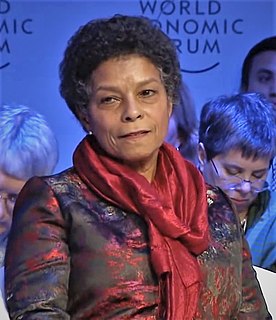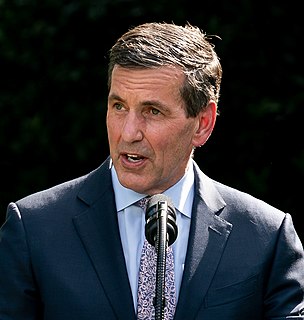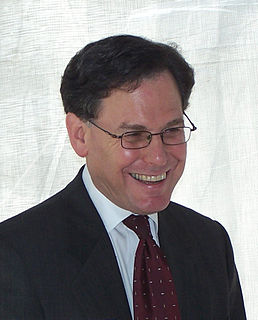A Quote by Risa J. Lavizzo-Mourey
I realized in order to be involved in health policy, you really had to understand more than the individual patient that we as physicians, are taught to think about.
Quote Topics
Related Quotes
Establishing a style is important, it really is, but a lot of singers get so involved with their instrument, and more so than they do in what they're singing. I think you really have to think about what you're singing. You have to make the public believe what you're singing. And in order to do that, you have to believe it.
When I got to MIT, I discovered a really interesting Master's program called the Science and Technology and Policy Program - it taught people with a background in STEM how to think about science and tech from a policy perspective. It was a great way to understand how to communicate science to a policymaker or a layperson.
When a physician is called to a patient, he should decide on the diagnosis, then the prognosis, and then the treatment. ... Physicians must know the evolution of the disease, its duration and gravity in order to predict its course and outcome. Here statistics intervene to guide physicians, by teaching them the proportion of mortal cases, and if observation has also shown that the successful and unsuccessful cases can be recognized by certain signs, then the prognosis is more certain.
I think most of the Washington foreign policy establishment exists in a fantasy world when it comes to Syria. They fundamentally don't understand that Russia and Iran, from the beginning, had much more at stake in Syria than the United States did. Russia and Iran were going to do everything possible in order to keep Bashar al-Assad in power.
I think one of the lessons we should have learned from what's happened with the current plan is that there is insurance coverage, but there is not really, many times, access to health care. If you have these high deductibles, there is every - there is a disincentive to get the policy, because you would have to pay another - I think the average of deductible policies on the individual market.
It is when physicians are bogged down by their incomplete technologies, by the innumerable things they are obliged to do in medicine when they lack a clear understanding of disease mechanisms, that the deficiencies of the health-care system are most conspicuous. If I were a policy-maker, interested in saving money for health care over the long haul, I would regard it as an act of high prudence to give high priority to a lot more basic research in biologic science.
Abraham Maslow taught me, that when you're working with a patient, never let them spend more than a few moments on the problem, because what you think about is what expands, and if they're talking about the problem all the time, when they leave your session, the problem will expand. Get 'em to put their attention on what they intend to create, or on solutions.

































